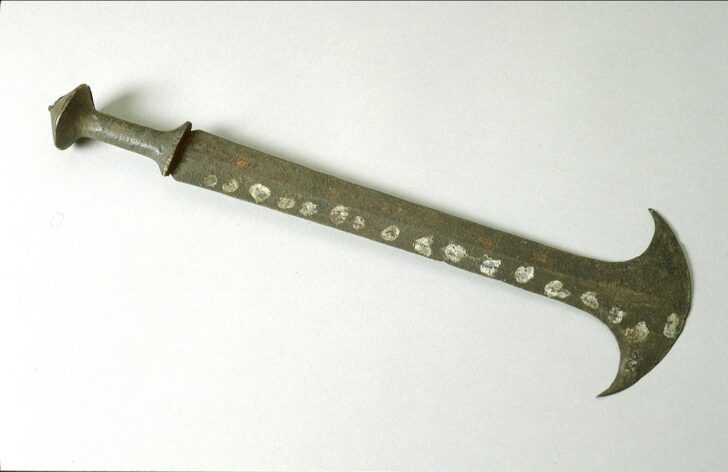Knife
Mongo

Description
Subject Matter:
This knife was most likely made by the Ekonda, a subgroup of the Mongo peoples who lived in what is today the Democratic Republic of the Congo. These skillful metalsmiths made many kinds of tools, weapons, and ceremonial objects, often with elaborate blades. This knife may have been a symbol of prestige, used in parades or ceremonial events. Similar objects have been called byongi.
References Cited:
Berardi, Marianne. 2004. Standing on ceremony: traditional African arms from the Donna L. and Robert H. Jackson Collection. Cleveland: The Western Reserve Historical Society.
Dewey, William J. 2003. The World Moves, We follow: Celebrating African Art. Knoxville: Frank H. McClung Museum, The University of Tennessee.
Elsen, Jan. 2003. De Fer et De fierté: Armes Blanches d'Afrique Noire Du Musée Barbier-Mueller. Milan: 5 Continents Editions.
Hurst, Norman. 1997. Ngola: The Weapon as Authority, Identity, and Ritual Object in Sub-Saharan Africa. Cambridge, MA: Hurst Gallery.
Physical Description:
A knife with a wooden handle and a metal blade terminating in a flat top with two points curving outward. Along one side of the blade is a line of white dots and along the other side are remnants of red pigment, possibly a similar line of dots.
Usage Rights:
If you are interested in using an image for a publication, please visit https://umma.umich.edu/request-image/ for more information and to fill out the online Image Rights and Reproductions Request Form.